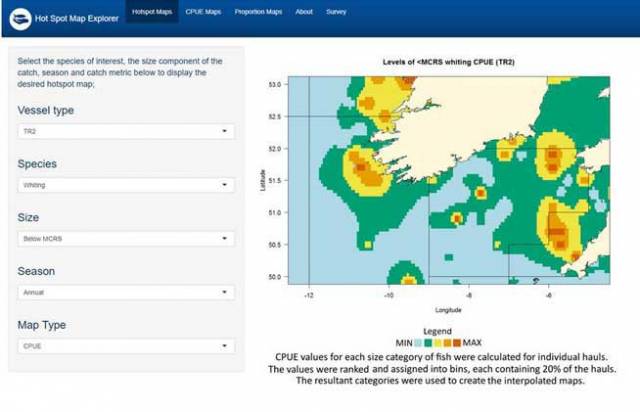Eight years after British celebrity chef Hugh Fearnley-Whittingstall campaigned to end the EU’s wasteful practice of encouraging skippers to dump unwanted fish at sea, a new Marine Institute “app” aims to make life easier for Irish fishing vessels writes Lorna Siggins.
The mapping application to avoid discard “hotspots“ can be used by skippers working mixed fisheries, particularly in Irish and British grounds, who face a virtually impossible task due to the richly diverse nature of marine life.
The “app” draws on data to identify sea areas where they are more likely to catch unwanted fish which cut short the length of their fishing trip.
It was the EU’s own labyrinthine Common Fisheries Policy which had forced skippers to take measures like dumping unwanted species or undersized fish at sea – prompting one French skipper to observe that EU fish policy was designed as if the Atlantic was as simple as an “aquarium plugged into a computer”.
Irish industry organisations point out they had pioneered the development of selective gear technology long before Mr Fearnley-Whittingstall’s “Fish Fight” campaign of 2011 made headlines. However, there is no fishing gear yet developed which is so selective that it can retain only targeted species.
Recognising this, the Marine Institute “app” identifies grounds with consistently high catch rates of juvenile fish and “choke” species – as in the first species to hit the quota limit, which then effectively halts all further fishing.
Skippers using the “app” have the option of avoiding these areas, making the best use of selective gear technology, the Marine Institute says.
The Marine Institute researchers used observer data collected from Irish, British and French vessels in the Celtic Sea, and developed mapping techniques to identify consistent patterns in catches on Irish grounds.
The interactive technology on the “app” includes individual maps per species, which can be viewed based on vessel category, season, and size of the catch.
“While much of the information contained within these maps will be familiar to those regularly fishing in these areas... this tool could act as an additional resource .. in avoiding unwanted catches through spatial avoidance,” Julia Calderwood and Dave Reid of the Marine Institute say.
The first phase of what the EU describes as the “landing obligation” came into effect on January 1st, 2015, for pelagic – mackerel, herring and blue whiting – fisheries. The discard ban applied to all quota species from January 2019.
The institute, based in Galway, has been working with partners from 12 countries to develop strategies for the gradual elimination of discards as part of a project called “DiscardLess”, funded by the EU’s Horizon 2020 programme.
The Irish Fish Producers’ Organisation (IFPO) said it welcomed any initiative which would assist Irish vessels, given the degree of concern around the implementation of the discard ban. The IFPO plans to hold several workshops on the issue with vessel owners in co-operation with the State’s Sea Fisheries Protection Authority (SFPA).
Skippers using the “app” have been asked by the Marine Institute to provide feedback which may help to improve it through a short online questionnaire here

































































